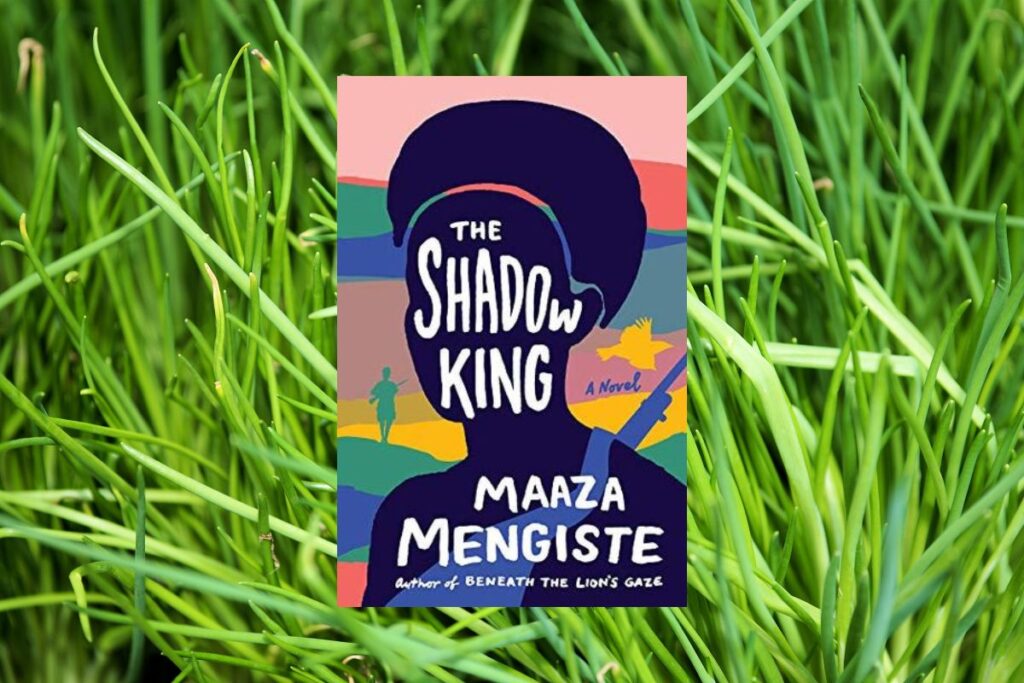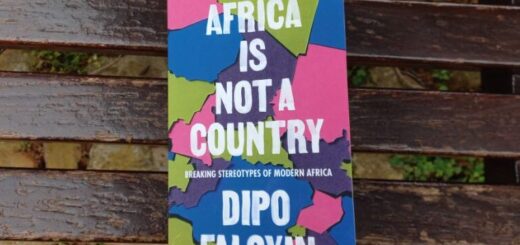Reading Ethiopia with ‘The Shadow King’
As one of Africa’s biggest countries and economies, Ethiopia is no stranger to South Africans. The country’s ancient history is widely recognised and it’s recently made news for its invasion of Tigray in 2020. Nevertheless, reading Ethiopia with The Shadow King was an instructional experience that was also thrilling and thought-provoking.
The Shadow King, which was shortlisted for the 2020 Booker Prize, takes you back to the Italian occupation of Ethiopia in the early years of World World II. The book looks at intersectional themes of feminism, women’s solidarity, vengeance and memory in the context of the colonial period. Told like a great oral epic, with evocative descriptions of songs, photographs and videos, The Shadow King is also a tribute to history and storytelling, and all the varied sources that inform them. It’s a fantastic novel set in Ethiopia, one which I highly recommend.
The Shadow King Plot

Orphaned Hirut lives at the mercy and whims of her mistress Aster. But when Italy invades Ethiopia, the household becomes an integral part of the Ethiopian resistance. As she takes up arms, Hirut begins to find her own voice and identity, and the courage to stand up to her oppressors.
Any review of The Shadow King will tell you that it is about a young girl who comes of age during the country’s war against Italy. But this novel set in Ethiopia does more than that. Hirut must fight patriarchy in the Ethiopian army, as well, and come to terms with the complicity of other women in that oppression. She must also make meaning of how posterity records her actions and those of the people around her and what this later means during the1970s revolution.
A major plotline rests on the unequal power balance between Hirut and Aster. While they go through similar experiences and fight together, Aster, who is of noble blood, enforces her superior amongst the women she leads in the army. Hirut defers to Aster’s rank and even feels protective of her, even though Aster has mistreated Hirut multiple times.
Because: there are mercies in this world that must be granted to those who have remained unmarked all their lives. There are unspoken rules for those who were born to carry rich histories and noble blood. There are ways the world must move in order to keep everything intact, and girls with scars must recognize their ways amongst those who make those scars. Hirut leans forward, incoherent with shock and revulsion and a deeper emotion that cuts through her like sharp glass. Because if this can happen to Aster, wife of Kidane, beloved daughter of Ethiopia, then what more is waiting its turn with her?
Hirut in ‘The Shadow King‘
Another key storyline centres on the intense, if strange, relationship between Ettore and Hirut. This is also the relationship between vengeance, forgiveness and mediating role of memory. Ettore is an Italian soldier, who photographs Ethiopian fighters before their execution, playing an active role in Italian propaganda and the humiliation of Ethiopians. Ettore is also Jewish during the time of the Holocaust and struggles to understand his place in a country which sends his parents to concentration camps while he does battle in its name.
After Hirut’s capture, Ettore’s photographs of her are sold across the country as trophies of Italian occupation. This is a great humiliation to Hirut and the Ethiopian resistance. Yet, Hirut comes to recognise Ettore’s compromised position when she sees him burying a box of letters from his parents. She understands him, although she hates him. Twice, she must decide whether to pursue vengeance or grant him a form of absolution.
That tension between forgiveness and vengeance spills out onto the streets of Addis Ababa some forty years later when protestors demand the exile of Italians remaining in the city and the abdication of Emperor Haile Selassie.
I photographed the dead and the dying. I helped kill the innocent. I left my parents to their fate. What right do I have to remain?.
Ettore in ‘The Shadow King‘
Part of the book’s structure takes its cue from opera. In these sections, the reader delves into the troubled mind and spirit of Emperor Haile Selassie. Amongst the most memorable scenes are those in which he imagines his daughter beside him, and finds serenity in her presence, despite threats on his country and his position. These interludes lend an endearing (if oddly so) quality to the emperor’s paralysation. They’re also a touching portrayal of loss and the power of enduring love.
What The Shadow King Teaches Us About Ethiopia
The Shadow King is a great work of historical fiction. Historical fiction is so important in African literature because it counters outdated stereotypes, often based on biased history, and brings to life a precolonial past which is too often overlooked.
This novel set in Ethiopia is rich in specificity, both historical and cultural. It details the historical Italian invasion in 1935 and the Ethiopian resistance that followed. The Italians perpetrated awful atrocities on Ethiopians, including the use of mustard gas and the massacre of civilians. This history remains largely unacknowledged in Italy and unknown around the world. “World War II forced us to contend with questions of human decency,” author Maaza Mengiste explained in an interview with History Extra. This is a theme that runs throughout the book.
Guerilla warfare, which has played an important role in many independence struggles, comes to life in The Shadow King. The knowledge of the land, the ability to move quickly, the careful planning of ambushes — these are all part of the plot and form some of the most lively writing.
Depictions of cultural elements like food, religion and language enhance the novel’s setting in Ethiopia. One of Hirut’s main duties before the war is to prepare food; there is a character simply called “the cook”. Injera, which is well-known today, is on the army’s menu. The Ethiopian Orthodox Tewahedo Church doesn’t have an obvious role but shows up in the priests who bless Hirut before they are executed and the soldiers who tie Bibles to their chests in battle. The Amharic language is often used for endearments and to demonstrate the language barrier between Hirut and Ettore. Together, these elements show a vibrant, living culture in this specific part of Africa.
There are references to the origins of the Tigrayan conflict in this book, too. The subplot about Emperor Haile Selassie and his late daughter is based on historic events. She unhappily married a Tirgrayan prince who was amongst the first to support the Italian invasion of Ethiopia. It’s also worth noting that the culture shown in this novel is largely ethnically Amharic. The emperor holds a big place in the characters’ hearts. Amharic dominance in imperial Ethiopia at the time is something which, according to the Georgetown Journal of International Affairs, is part of the historic roots of the ongoing Tigray-Ethiopia conflict.
About Ethiopian Author Maaza Mengiste
Ethiopian author Maaza Mengiste is the brains behind The Shadow King. Her first novel, Beneath the Lion’s Gaze, takes place during the revolution in 1970s Ethiopia.
Mengiste was inspired by stories of ill-equipped Ethiopians defeating a sophisticated Italian army, something which shaped her identity as an Ethiopian. At first, she only understood the war as fought by men. However, while researching the book, she learned from her mother that her great-grandmother had been in the army.
“When I discovered that Ethiopia women fought in the front lines against fascists — and learned that my great-grandmother was one of those women who enlisted — it burst open the possibilities of what this war could teach us about what it means to face a larger, stronger opponent not only on the battlefield, but also in the most intimate and domestic spaces,” she said in a Booker Prize interview.
She spent years researching the book, including time in an Italian residency. Her familiarity with Italian culture and history shows in the book, with references to Verdi’s Aida, for example. The narrator of The Shadow King sounds strikingly similar to that of the Iliad. It can seem jarring or inauthentic, given that this is an African tale, but if we think back to the origins of the Iliad, to its roots in oral tradition, it is less unusual that Ethiopian epic should be similar. It’s probably more accurately a reflection of our own Western colonisation to hear it as Greek since oral tradition has universal features.
Why You Should Read This Novel Set in Ethiopia
Is The Shadow King a true story? Yes. And that’s one of the beautiful qualities of the book, a rarity in African fiction: the Ethiopians win and this is historically true. Ethiopia is often considered to be one of only two African countries never colonised because, although it experienced Italian occupation, colonial administration did not endure.

Victory doesn’t heal Ethiopian suffering but it gives the characters pride and vindication in their struggle. This formed a crucial part of Ethiopian identity, just as the earlier victory means so much to characters like Hirut, who clings to the gun her father used during the previous Italian invasion.
“No person, no woman, no girl is too small to actually make a change in world history,” said Mengiste of Hirut’s story in her History Extra interview. In this sense, the bravery of Hirut and the many other ‘shadow kings’ is an inspirational call to action for active citizens.
The specificity of this history and Ethiopian culture are also engaging for readers. That’s not to mention the lyricism of Mengiste’s writing, the compelling depiction of characters like Hirut and Aster, and the complicated relationship between them. All in all, The Shadow King is an excellent novel set in Ethiopia and a great way of learning about that country.
Please note that The Shadow King contains scenes of rape, execution and other war crimes. Describing the misery of these experiences is not the point of the book (as sometimes seems to be the case in some works of African fiction) but these assaults are integral to how relationships evolve between the characters.


